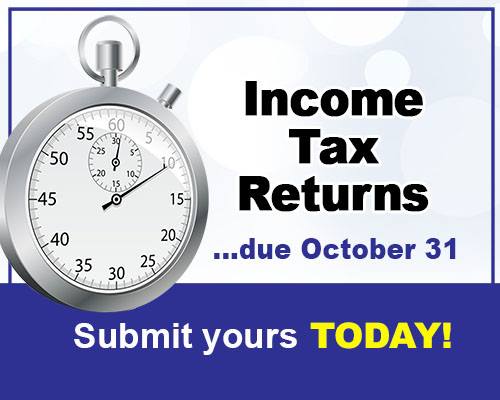
Taxation of Benefits
The following benefits are taxable to the extent shown below:
1. FREE AND SUBSIDISED ACCOMMODATION OR HOUSING
2. MOTOR VEHICLE BENEFITS
The benefits are as follows:
Where the motor vehicle (or aircraft) is available for use both for work and private purposes. The formula is as follows:
(20% x A x B/C) - D
Where:
A is the market value of the motor vehicle at the time it was first provided for the private use of the employee
B is the number of days in the year of assessment on which the motor vehicle was used or available for use for private purposes by the employee for all or part of the day
C is the number of days in the year of assessment
D is any payment made by the employee
Note the following
Where an employee purchases a personal vehicle with assistance from the employer as part of a benefit, the fixed allowance given towards the costs of the vehicle is a taxable benefits.
Where an employee uses a personal vehicle on employer’s business, the annual value of benefits are attributable to such an employee for use of the vehicle for private purposes is determined by the following formula:
A = B - ( C x D )
E
Where
A is the amount to be included in taxable income
B is the car allowance received (car allowance includes all cash allowances plus market value of any free benefit i.e. free fuel)
C is the actual expenditure on fixed and running cost (net of any recoupments) or is the deemed fixed and running costs where accurate records are not kept
D is the business mileage recorded in a log book or number record; or the deemed business is mileage of 6000 km where accurate records are not kept
E is the total mileage; or deemed total mileage of 24 000 km where accurate records are not kept
Cost of motor vehicle means the costs as quoted by the manufacturer or what the purchaser paid including VAT/Sales Tax, air conditioners, radio tape, alarm and excluding finance charges (bank loan)
Deemed expenditure is determined on the following basis:
Fixed Costs: 25% of the original cost of the motor vehicle in each year
|
Running costs per km: |
up to 1600cc |
54c per km |
|
|
1600cc to 2000cc |
76c per km |
|
|
Over 2000cc |
85c per km |
(The cost of the vehicle is the cost of the vehicle as quoted by the manufacturer or what the purchaser paid and any additions and accessories such as air-conditioning, radio-tape, and burglar alarm etc, excluding finance charges).
Example:
Cost of vehicle = E250 000;
Car allowance = E7000 per month; Engine capacity = 1.6cc; where the employee does not keep a log book.
B = (7000 x 12 months) = 84 000
C = (25% of 250 000) + (24 000 x 76cents) = E62 500 + E18 240 = E80 740
D = 6000 km (deemed business mileage)
E = 24 000km (deemed total mileage)
A (taxable benefit) = E84 000 – (E80 740 x E6 000)
E24 000
= E63 815
NOTE:
The rule in (iii) only applies to the following circumstances:
3. PROVISION OF DOMESTIC ASSISTANTS
The value of the benefit is the remuneration paid to the domestic assistant in respect of the services rendered to the employee.
(The value of this benefit is not expected to be less than the minimum wages as set out in the Wages Act or Legal Notice issued for the regulation of wages)
4. UTILITIES (ELECTRICITY, WATER, COAL, GAS)
The value of the benefit is the amount of reimbursement or discharge payable by employer for employee on utilities expenditure if separately metered. Where the utilities are not separately metered the benefit value is 10% of the housing benefit for each service.
5. CHILDREN'S EDUCATIONAL ASSISTANCE BENEFIT
The value of the benefit is the cost to the employer for providing such educational assistance. If the educational assistance is provided through an approved bursary scheme, only 50% of the total amount paid by the employer during each year of assessment shall be taxable.
6. SOFT LOANS
If a loan is granted interest free or less than the official rate to an employee, either by the employer or a lending institution, the taxable benefit is the whole amount of interest or the difference between the official rate and the subsidized rate.
7. MEALS, REFRESHMENTS AND ENTERTAINMENT
The value of the benefit is the cost to the employer of providing the meal, refreshment or entertainment.
8. DE MINIMUS RULE
This refers to benefits whose value is so small, as to make it unreasonable or administratively impractical to account for them for tax purposes. Click here for a Guideline on the tax treatment of these kind of benefits.
View all Customs and Excise Forms
View all VAT Forms
View all Income Tax Forms

Provisional Tax:
1st payment is due no later than 31st December
2nd payment is due no later than 30th June
3rd payment is due on receipt of Notice of Assessment after having submitted Income Tax returns
Remittance of PAYE:
No later than the 7th every month
Publications
Payments
© 2024 Eswatini Revenue Service. All rights reserved
Website Designed by Real Image Internet